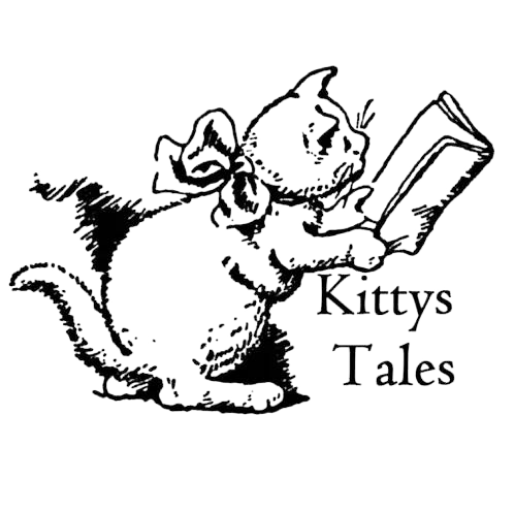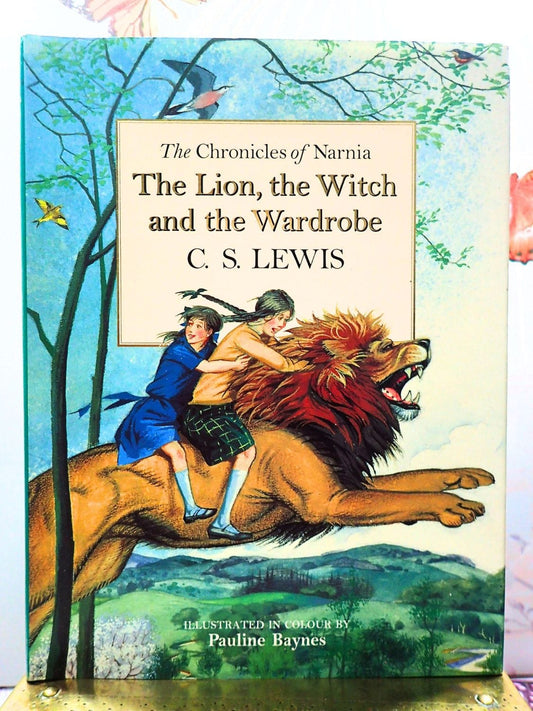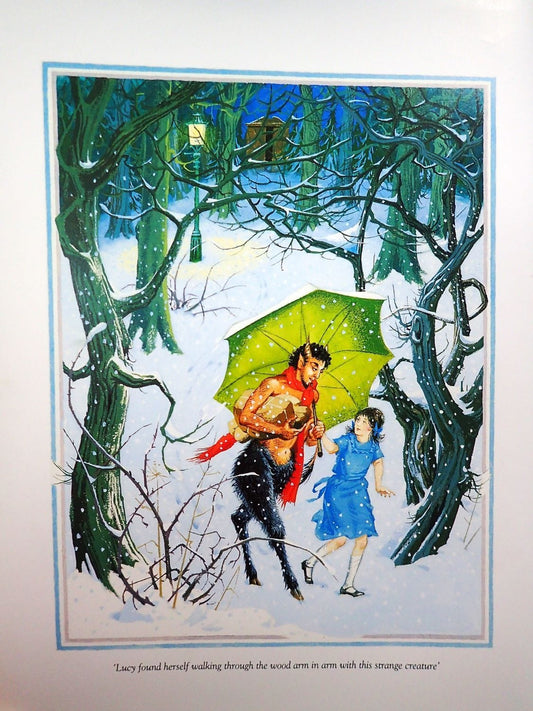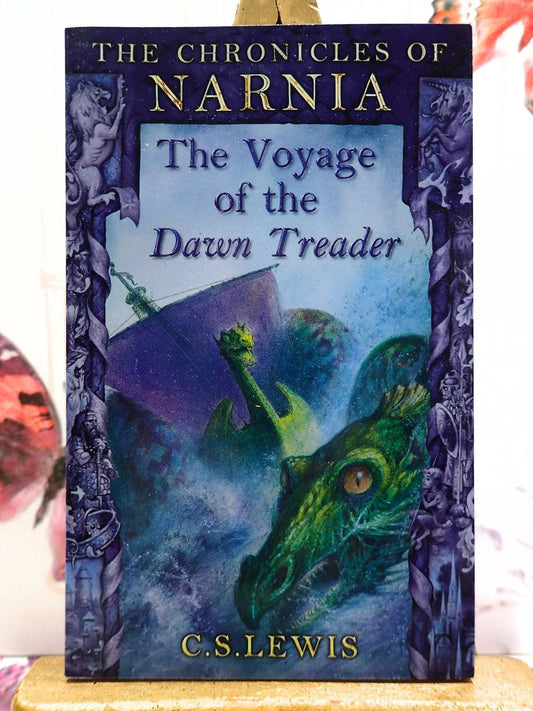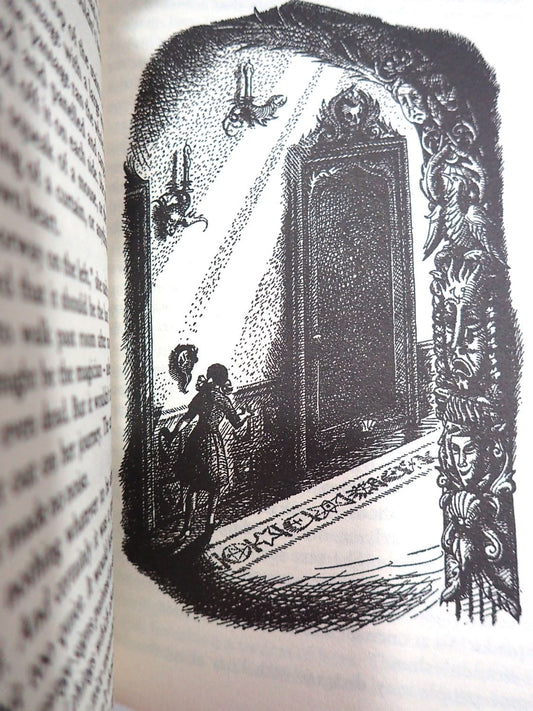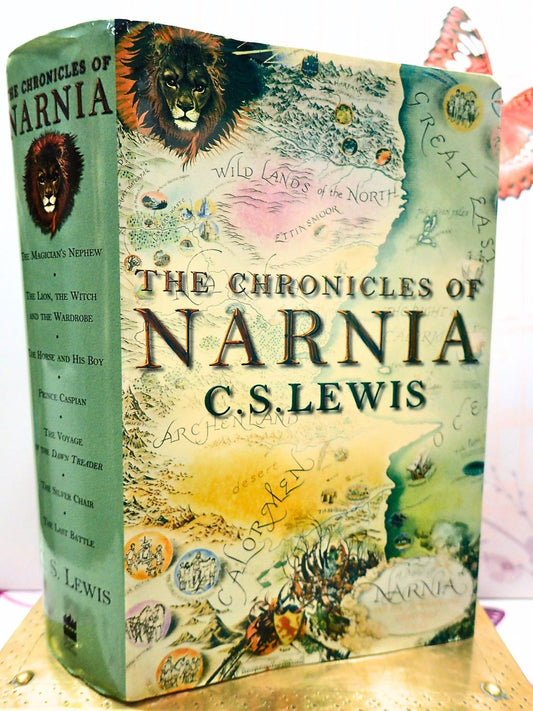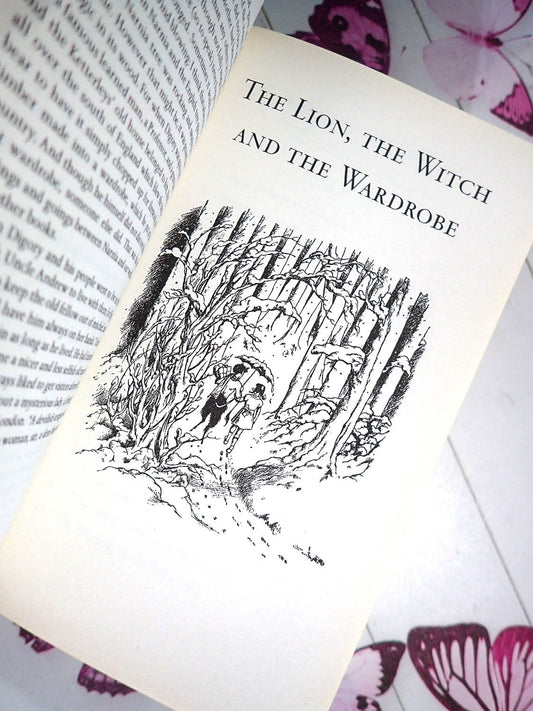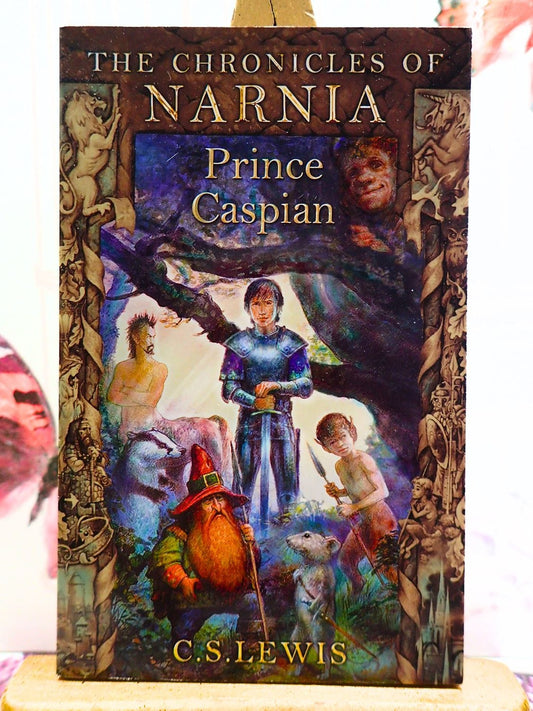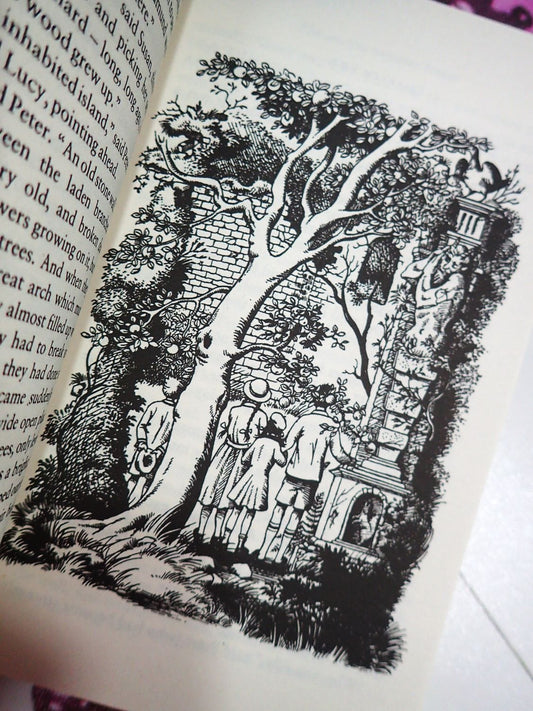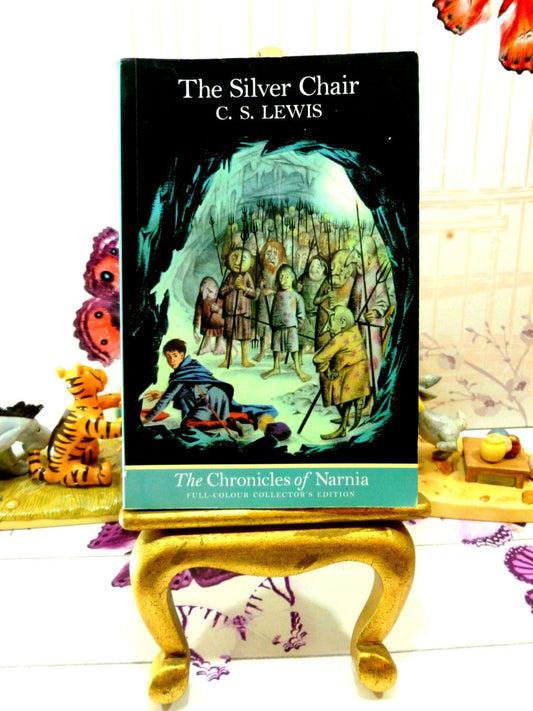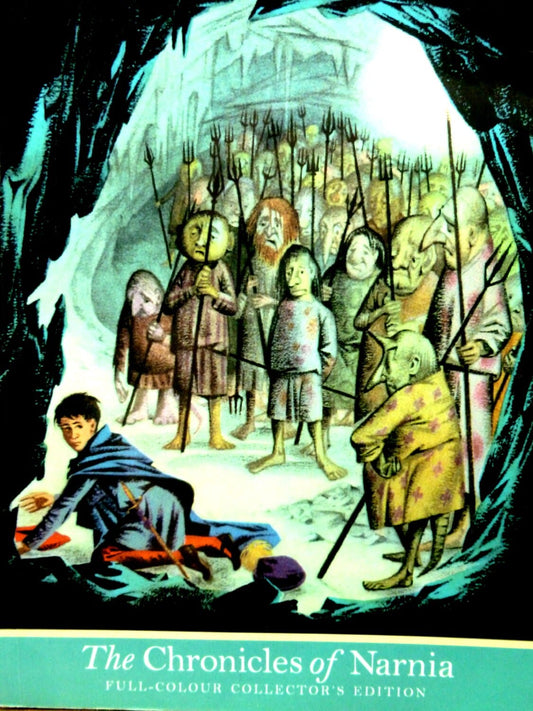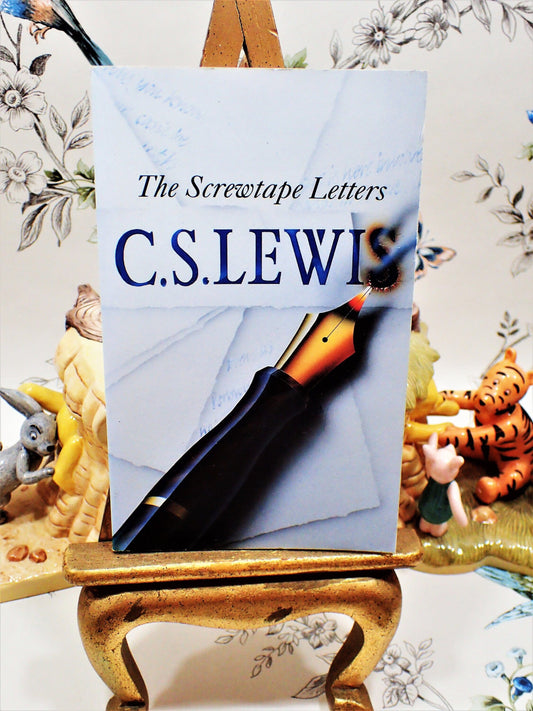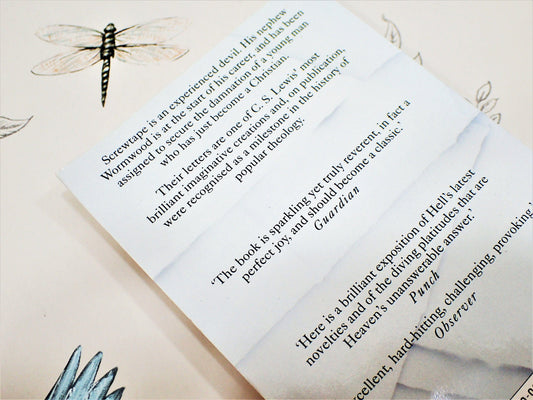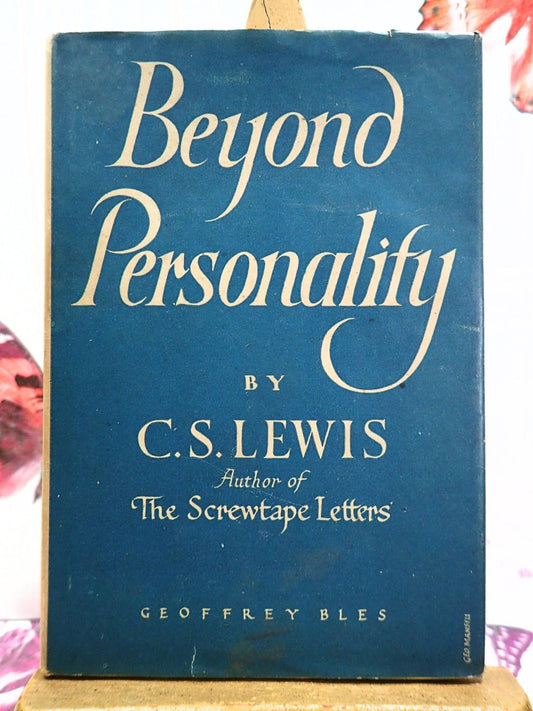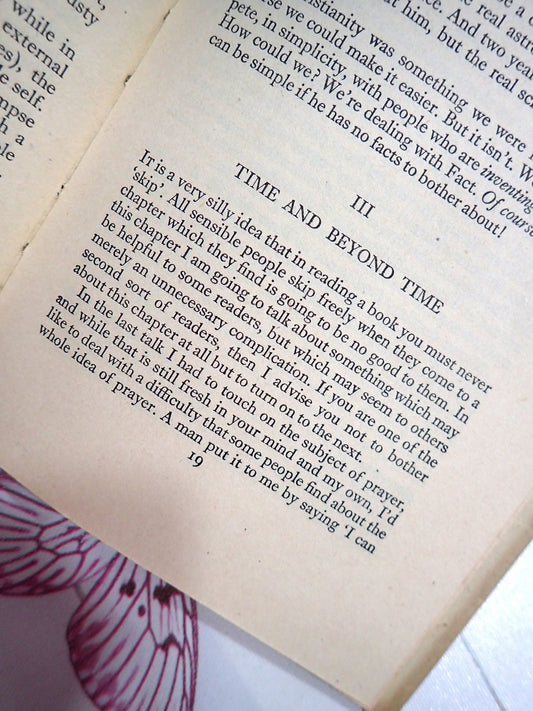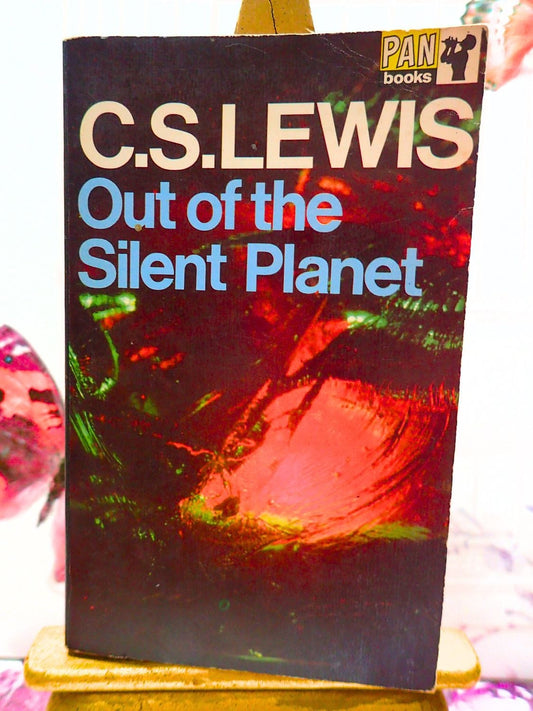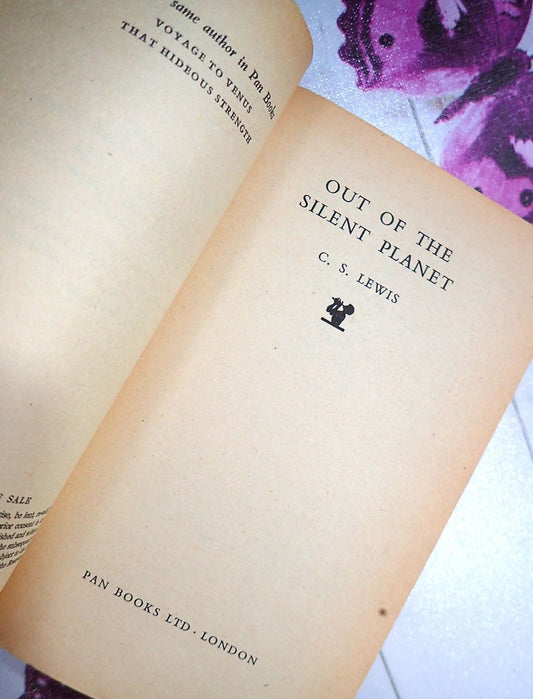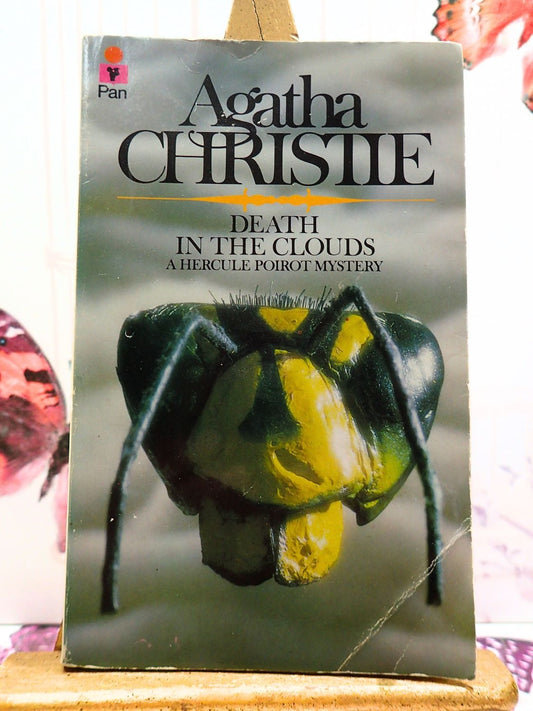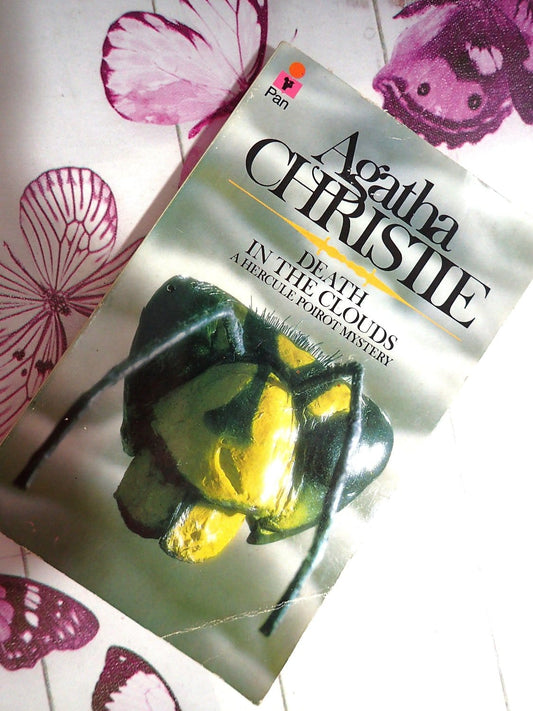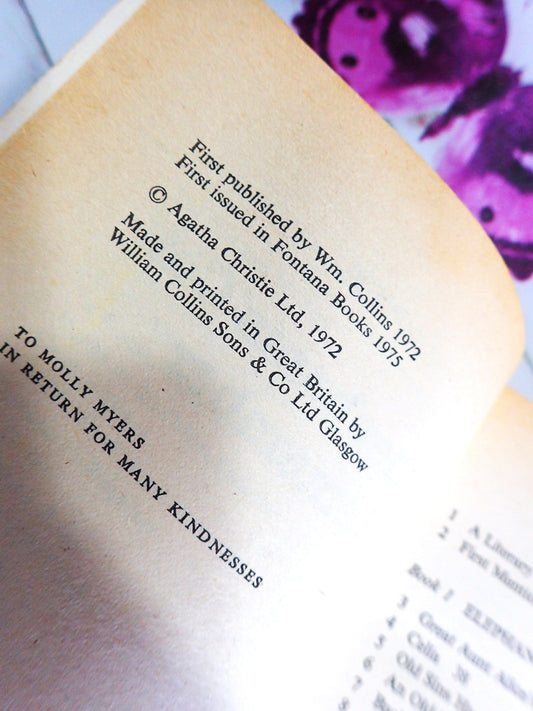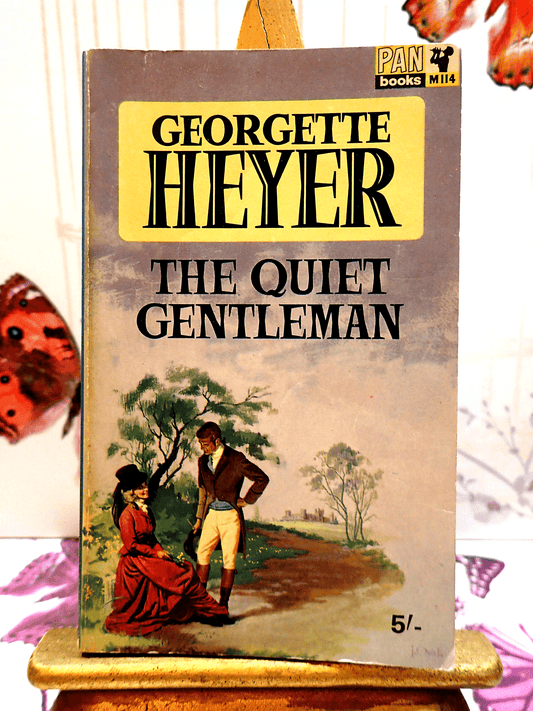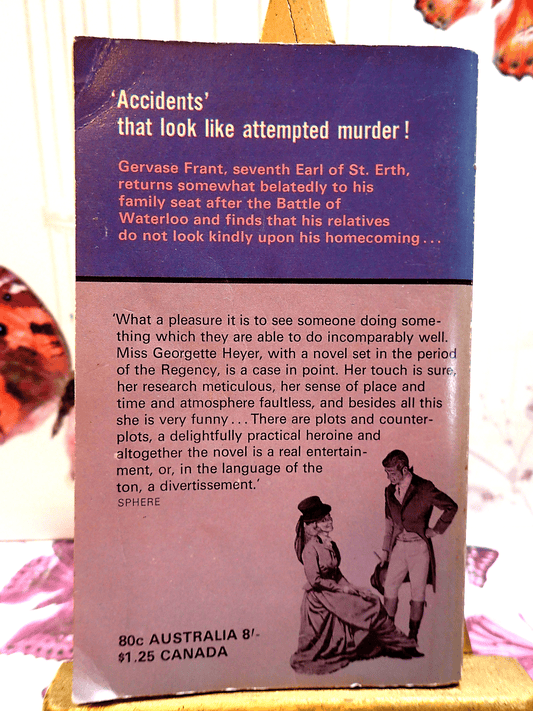Vintage C.S. Lewis Books
-
We sell wonderful vintage children's books by C.S. Lewis author of "The Lion the Witch and the Wardrobe" such as the marvellous "Chronicles of Narnia" as well as his lesser known vintage Sci Fi Classics. You can find 'The Magician's Nephew' or 'Prince Caspian'. Fight for Narnia in 'The Last Battle' or 'Voyage to Venus' on a flight of fantasy.
In our friendly vintage bookstore you can browse our carefully curated selections of lovely quality collectable vintage children's books including the occasional rare book and first editions by this famous British author of some of the best 20th century children's books ever written.
Discover the fascinating life of this celebrated British writer and scholar best known for his beloved children's books as well as being famous for his Science Fiction and Theological books and revel in the enchanting illustrations made for his books by the famous illustrator Pauline Baynes.
-
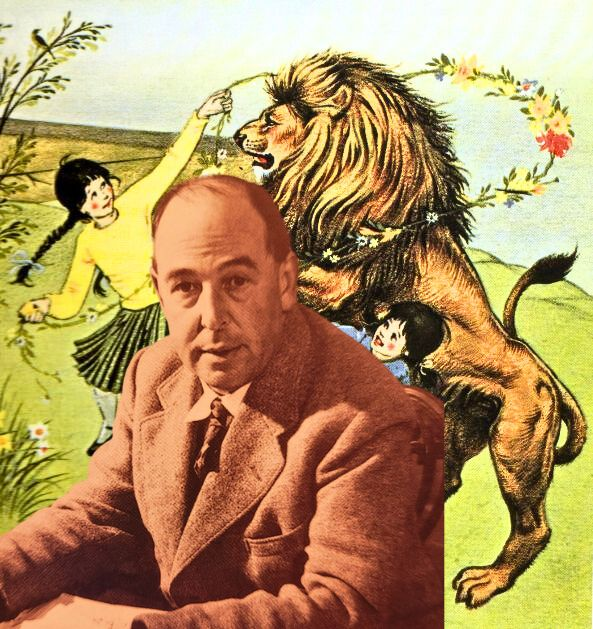
-
The Lion, The Witch and the Wardrobe C. S. Lewis Vintage Children's Book Classic Fantasy
Vendor:Kittys TalesRegular price $34.00 USDRegular priceUnit price / per -
The Voyage of the Dawn Treader C. S. Lewis Chronicles of Narnia Vintage Children's Book Paperback Harper Collins
Vendor:Kittys TalesRegular price $12.00 USDRegular priceUnit price / per -
The Chronicles of Narnia C. S. Lewis True First Edition Omnibus 1998 Vintage Children's Book
Vendor:Kittys TalesRegular price $173.00 USDRegular priceUnit price / per -
Prince Caspian C. S. Lewis Chronicles of Narnia Vintage Children's Book Paperback Harper Collins
Vendor:Kittys TalesRegular price $12.00 USDRegular priceUnit price / per -
The Silver Chair C.S. Lewis Vintage Children's Book Narnia Paperback Collectors Edition 1998
Vendor:Kittys TalesRegular price $12.00 USDRegular priceUnit price / per -
The Screwtape Letters C S Lewis Vintage Paperback Book 1970s from a Senior to Junior Devil Chronicles of Narnia Author
Vendor:Kittys TalesRegular price $12.00 USDRegular priceUnit price / per -
Beyond Personality C. S. Lewis First Edition Geoffrey Bles 2nd Print 1944 Vintage Book
Vendor:Kittys TalesRegular price $53.00 USDRegular priceUnit price / per -
Out of the Silent Planet C. S. Lewis Classic Vintage Sci Fi Book 1970's Pan Paperback
Vendor:Kittys TalesRegular price $17.00 USDRegular priceUnit price / per
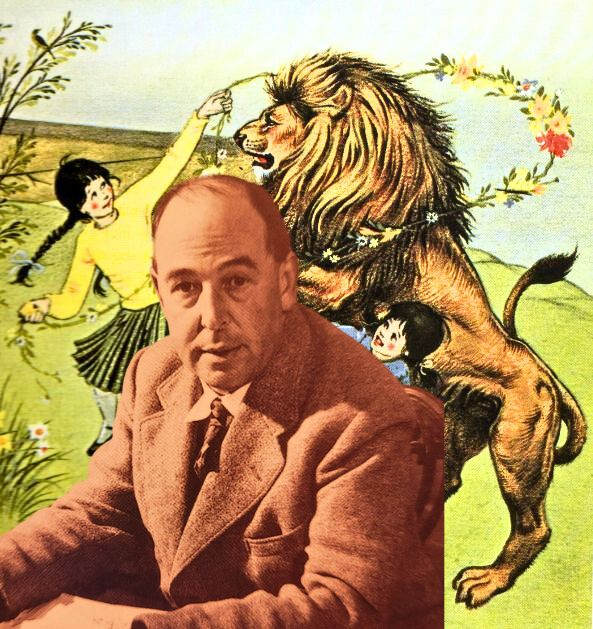
"I am a product of long corridors, empty sunlit rooms, upstair indoor silences, attics explored in solitude, distant noises of gurgling cisterns and pipes, and the noise of wind under the tiles. Also of endless books."
"You can never get a cup of tea large enough or a book long enough to suit me."
Clive Staples Lewis
C.S. Lewis, best known for his children's books 'The Chronicles of Narnia', was a renowned British writer and scholar, he led a remarkable life filled with intellectual pursuits and creative contributions. Clive Staples Lewis, commonly known as C.S. Lewis was born on November 29, 1898, in Belfast, Ireland.
Lewis's early life was marked by personal tragedy when his mother passed away when he was just nine years old. He and his brothers were brought up by his father, a solicitor. It is not difficult to imagine that after the loss of his mother much of his childhood must have felt lonely, perhaps this loneliness fuelled his early imaginings resulting in his creation of an imaginary country called 'Bloxen'.
Throughout his childhood he had an all-consuming love for books...
Collapsible content
Read More
He found solace in literature and spent hours engrossed in imaginative tales and classic mythologies. He loved the writings of authors such as E. Nesbit, especially 'The Story of the Amulet' (1906) eagerly absorbing the magical and fantastical aspects of the story.
He also loved the Norse Myths and was inspired further by Homer's 'Iliad', 'The Odyssey' and author George Macdonald's 'Phantastes' (1858). This passion for books and epic storytelling would later shape his own writing in later life he stated 'I wrote the books that I should have liked to read'.
As a young man, Lewis fought in World War I, an experience that deeply affected him. Following the war, he pursued his education at Oxford University, where he excelled in literature and philosophy becoming a distinguished scholar. He became a fellow and tutor at Magdalen College, Oxford, and later held the position of Chair of Medieval and Renaissance English at Cambridge University in 1954.
During his academic career, Lewis developed a close friendship with J.R.R. Tolkien. Meeting the author of 'The Lord of the Rings' was a pivotal moment. Along with a group of like-minded friends they formed a lively group known as The Inklings, meeting at a local pub to discuss writing and all things literary.
These meetings with such great minds served as a fertile ground for intellectual exchange, spurring each other on to write, and fuelling Lewis's creative endeavors. Under Tolkien's influence he began to write the 'Chronicles of Narnia' (1950-6).
Lewis always said the seeds of his writing came from his childhood claiming:
"I am a product of long corridors, empty sunlit rooms, upstair indoor silences, attics explored in solitude, distant noises of gurgling cisterns and pipes, and the noise of wind under the tiles. Also of endless books."
The bare bones of 'The Magician's Nephew', beginning with the wanderings in the attic can easily be seen within this quote. As for books apparently all the bookshelves in his house were at least two books deep so they really were endless!
C.S. Lewis's writing career took off with the publication of 'The Pilgrim's Regress' in 1933, followed by the science fiction trilogy 'Out of the Silent Planet,' 'Perelandra,' and 'That Hideous Strength.'
It was his children's fantasy series, 'The Chronicles of Narnia,' with the endearing characters of the Peverel children with Aslan, The White Witch, Tumnus the Faun and all the other wonderful characters that catapulted him to literary stardom.
This beloved series, the entire 'Chronicles' consisting of seven books, including 'The Lion, the Witch, and the Wardrobe,' enchanted readers of all ages with its allegorical themes and captivating storytelling richly melded with the mythology that Lewis loved.
Having at one point in his life embraced Atheism, under the wing of Tolkien Lewis regained his Christianity. Beyond his fiction, Lewis is renowned for his works on Christian apologetics, writing eloquently to defend the rationality of the Christian faith. His book 'Mere Christianity' along with the slightly tongue in cheek 'The Screwtape Letters', have become classics in the genre and continuing to resonate with readers seeking to understand and articulate their faith.
Lewis's engaging writing style, combined with his profound insights into theology and philosophy, attracted a wide audience. His ability to communicate complex ideas in a relatable manner contributed to his enduring popularity.
Despite his literary success, Lewis experienced personal hardships, including the loss of his wife, Joy Davidman, to cancer. Her influence on his life is evident in his poignant work, 'A Grief Observed,' where he grapples with the profound pain of her death. The book was later adapted as a moving film starring the great Anthony Hopkins playing the role of C. S. Lewis.
C.S. Lewis's remains one of our greatest loved children's authors. 'The Chronicles of Narnia' have been read and enjoyed by generations of children and their appeal never ceases.
Early and first editions of these classic children's books are some of the most highly sought after children's books to collect. His thought-provoking ideas and imaginative storytelling continue to inspire and captivate readers, young and old.
Even as an adult it is possible to return to these wonderful books and gain some deep sense of spirituality and wonder from them. His books have sold millions of copies worldwide and have been translated into multiple languages.
There has been much criticism of the allegorical tone of Lewis's Chronicles of Narnia, suggesting they proselytize Christianity and are propaganda. This is a simple assumption to make with only a very shallow reading of the books. For example, the so called crucifixion allegory wherein Aslan the lion is freed from his ropes by a mouse, is not purely some fevered idea of Lewis's to mimic a crucifixion scene but instead is drawn directly from a fable by Aesop written thousands of years ago of The Lion and the Mouse, this fable in itself is also believed to date back further to the Egyptian Dynasties. To assume that the books are simply some mockumentary of Christianity is actually quite puerile.
Above all, Lewis wanted to entertain children with fiction and that is what he achieved, that his stories are veined with the blood of ancient myth, fable and religious allegory makes them no less enjoyable for children.
A gifted writer, academic, and Christian thinker, he lived a life filled with passion, intellectual curiosity, and creative exploration. Not only as a children's author but his contributions to literature and theology have left a deep impression making him one of the most beloved and influential literary figures of the 20th century and beyond.
Books by this Author
C.S. Lewis produced an extensive body of work across various genres:
Fiction:
● "The Pilgrim's Regress" (1933)
● "Out of the Silent Planet" (1938)
● "Perelandra" ("Voyage to Venus")(1943)
● "That Hideous Strength" (1945)
● "The Chronicles of Narnia" (a series of seven books):
○ "The Lion, the Witch and the Wardrobe" (1950)
○ "Prince Caspian" (1951)
○ "The Voyage of the Dawn Treader" (1952)
○ "The Silver Chair" (1953)
○ "The Horse and His Boy" (1954)
○ "The Magician's Nephew" (1955)
○ "The Last Battle" (1956)
Non-fiction and Christian Apologetics:
● "The Problem of Pain" (1940)
● "The Abolition of Man" (1943)
● "Miracles: A Preliminary Study" (1947)
● "Mere Christianity" (1952)
● "Surprised by Joy: The Shape of My Early Life" (1955)
● "Reflections on the Psalms" (1958)
● "The Four Loves" (1960)
● "The World's Last Night and Other Essays" (1960)
● "A Grief Observed" (1961)
● "The Discarded Image: An Introduction to Medieval and Renaissance Literature" (1964)
Essays and Collections:
● "Rehabilitations and other Essays" (1939)
● "The Weight of Glory and other Addresses" (1949)
● "Fern-seed and Elephants and other Essays on Christianity" (1975)
● "God in the Dock: Essays on Theology and Ethics" (1970)
● "Undeceptions: Essays on Theology and Ethics" (1971)
● "Of Other Worlds: Essays and Stories" (1982)
● "Present Concerns" (1986)
Poetry:
● "Spirits in Bondage: A Cycle of Lyrics" (1919)
● "Dymer" (1926)
● "Narrative Poems" (1969)
Letters:
● "The Collected Letters of C.S. Lewis" (three volumes)
Shop more of our Best Loved Vintage Books:
-
Prince Caspian C. S. Lewis Chronicles of Narnia Vintage Children's Book Paperback Harper Collins
Vendor:Kittys TalesRegular price $12.00 USDRegular priceUnit price / per -
Death in the Clouds Agatha Christie Pan Paperback Classic Vintage Crime Book 1980's
Vendor:Kittys TalesRegular price $12.00 USDRegular priceUnit price / per -
Elephants Can Remember Agatha Christie Fontana First Time in Paperback 1st Edition
Vendor:Kittys TalesRegular price $17.00 USDRegular priceUnit price / per -
The Quiet Gentleman by Georgette Heyer First Edition Pan Paperback Vintage Book Historical Romance
Vendor:Kittys TalesRegular price $17.00 USDRegular priceUnit price / per
Browse More of Our Best Author Collections
-
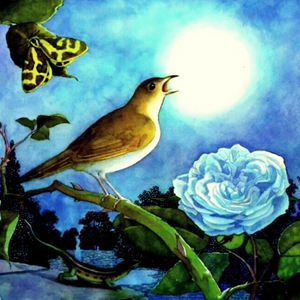
Vintage Bedtime Story Books
Why do we recommend "Kittys Tales" Collection of "Vintage Bedtime Story Books"? Many...
-
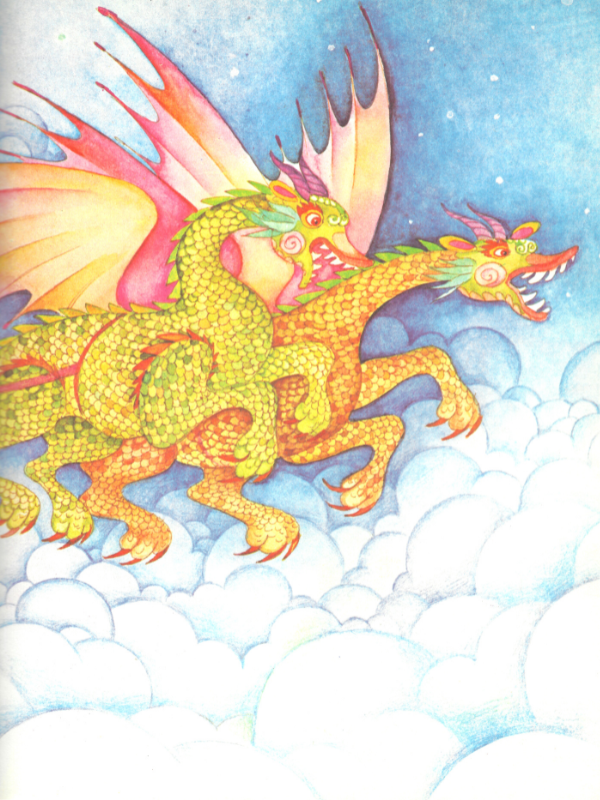
Fairy Tale Myth and Fantasy Books
Why choose our Vintage Fairytale, Myth and Fantasy books? Old Fairy Tale...
-
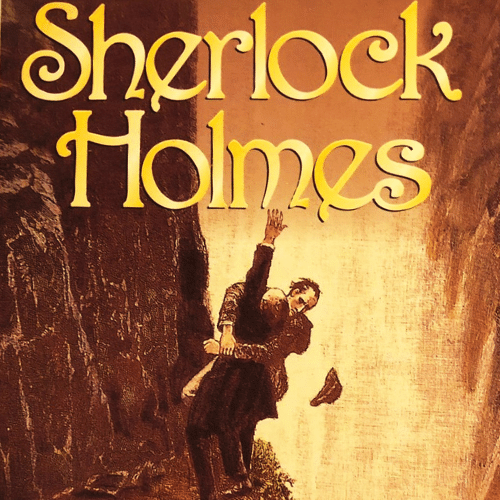
Crime Fiction & Detective Stories
Why browse Kitty's Tales vintage Crime Fiction and Detective Stories? Everyone has...
